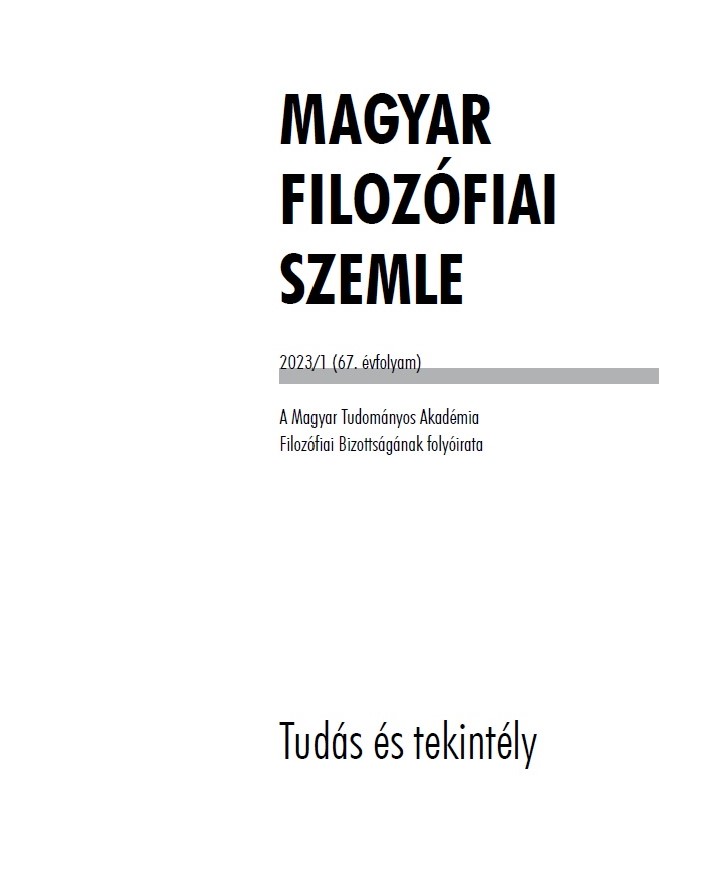Platón és Arisztotelész mint episztemikus tekintélyek Plótinosz filozófiájában
Absztrakt
In this paper, I examine the epistemic and cultural framework of creating philosophical theories in late antiquity, focussing on Plotinus, a key figure in the history of Platonism. In the first two sections, I spell out the implications of the fact that Plotinus treats Plato as a “strong” epistemic authority. I largely rely on the apparatus developed by Opsomer and Ulacco (2016), supplementing it with a further consideration: I interpret the attribution of authority in terms of a communicative act. Accordingly, I take into account the setting in which Plotinus conducted his inquiries (about which, in his case, we know quite a bit). Furthermore, I attempt to identify the rules governing the discourse of attributing authority. I argue that Plotinus takes Plato’s statements out of the normal order of dialectical discourse (i. e. from the aporetic examination of the views of his predecessors) and he treats them instead as starting-points of dialectical inquiry and as standards against which the correctness of his own constructive theory can be measured. Finally, I consider the respective weight of Plotinus’ various reasons for attributing such an exceptional status to Plato. I conclude that, even if Plato’s authority is mainly based on his insight into the nature of intelligible reality, which is in principle available to anyone, Plotinus does not regard it as merely provisional or hypothetical. In the last four sections, I argue that Plotinus treats Aristotle as a secondary authority, i. e., he uses his texts to confirm, to elucidate and to further elaborate what he takes to be Plato’s doctrine. In some contexts, he appeals to Aristotle’s statements as starting-points of inquiry and as criteria of truth. Elsewhere, he is prepared to criticize Aristotelian doctrines, which means that Aristotle is not an authority for him in an absolute sense. In my view, however, he is far from being an anti-Aristotelian. I argue (against the interpretation developed by Chiaradonna in a series of articles) that Plotinus’ treatment of physical motion and time is better understood in terms of creative appropriation and reinterpretation and that he leaves open the door to interpreting Aristotle in a more favorable sense even in cases in which he criticizes his statements.



